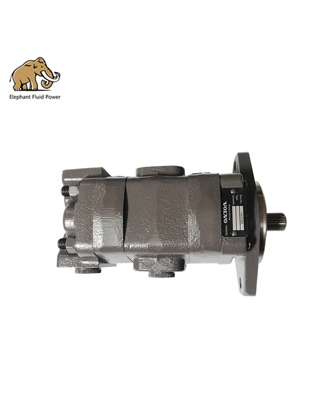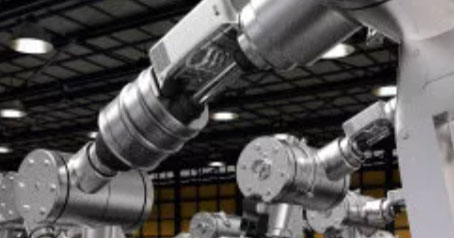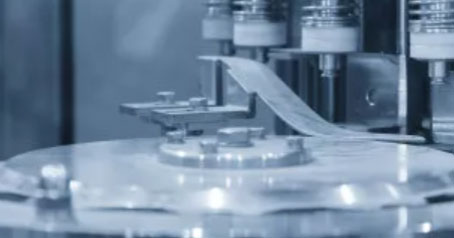The Excavator pump is the core component of the excavator's hydraulic system, and here's how it is:
First, types and characteristics
1. Piston pump: It has the characteristics of high pressure, large flow and high efficiency, which can meet the requirements of excavator excavation and lifting and other large-load operations, and has a wide range of flow adjustment, and can accurately control the flow of hydraulic oil according to work requirements.
2. Gear pump: simple structure, reliable work, low cost, often used in the pilot system or auxiliary hydraulic system of excavator, to provide stable pressure and flow for the control of the oil circuit.
Second, how excavator pump works
The engine drives the hydraulic pump to rotate, and the plunger or gear and other components in the hydraulic pump move, causing the sealing volume to change. When the sealing volume increases, a local vacuum is formed, and the hydraulic oil in the oil tank is sucked into the pump under the action of atmospheric pressure; When the sealing volume is reduced, the hydraulic oil is squeezed out to form a hydraulic oil flow with a certain pressure and flow, which provides power for the hydraulic cylinders of the excavator's various working devices such as boom, stick, bucket, etc., as well as the rotary and walking motors, and realizes the corresponding actions.
Third, common faults are as follows:
Abnormal pressure
1. Insufficient pressure: It may be caused by insufficient hydraulic oil, clogged filter element, leakage caused by wear and tear in the pump, and failure of the relief valve. Insufficient hydraulic oil can cause the pump to suction poorly, clogged filters can hinder oil flow, wear inside the pump can cause the high-pressure chamber to communicate with the low-pressure chamber, and a faulty relief valve may prevent pressure from establishing.
2. The pressure is too high: it is usually due to improper adjustment of the relief valve, the valve core stuck in the closed position, and the system pipeline is blocked, resulting in the oil cannot be returned normally and the pressure continues to rise.
The traffic is abnormal
1. Insufficient flow: the reasons include the low speed of the pump, the leakage of the suction pipeline, the high viscosity of the hydraulic oil, the wear or damage of the pump, etc. If the speed is too low, it may be an engine failure or a transmission system problem, the air leakage in the suction pipe will cause air to enter the pump, affecting the oil absorption effect, and the high viscosity of the hydraulic oil will increase the oil absorption resistance.
2. Unstable flow: It may be caused by factors such as the unstable drive system of the pump, the air mixed in the hydraulic oil, and the damage of the internal components of the pump. The instability of the drive system will cause the speed of the pump to fluctuate, and the mixing of air in the hydraulic oil will increase the compressibility of the oil and affect the stability of the flow rate.
Noise anomalies
1. Mechanical noise: caused by the failure of mechanical components such as bearing damage, gear wear, plunger wear, pump shaft bending, etc. Damage to these components can lead to unsmooth operation, vibration and noise.
2. Fluid noise: Fluid noise will occur when air is mixed into the hydraulic oil, the oil absorption is not smooth, the oil viscosity is too high or too low, and the system pressure impact occurs. For example, air forms bubbles in the oil, and the bubble bursts to create noise.
Leakage issues
1. Internal leakage: mainly due to the damage of the internal seal of the pump, the excessive gap between the plunger and the cylinder block, and the wear of the distribution plate, etc., the hydraulic oil flows from the high-pressure chamber to the low-pressure chamber in the pump, which reduces the volumetric efficiency of the pump.
2. External leakage: Usually the hydraulic oil leaks to the outside of the pump due to damage to the shaft seal, loose pipe joints, and rupture of the pump body. External leakage will not only cause oil waste and environmental pollution, but also may affect the normal operation of the excavator.
Fourth, maintenance points
Similar to general hydraulic pumps, it is necessary to regularly check the oil level and oil temperature to prevent oil leakage, ensure that the oil is clean, and replace the oil and filter elements according to the regulations. In addition, due to the harsh working environment of the excavator, special attention should be paid to preventing dust, soil and other impurities from entering the hydraulic system, regularly cleaning the hydraulic pump and surrounding components, checking whether the connection parts are loose, and regularly testing and debugging the performance of the hydraulic pump to ensure that it works stably and reliably under complex working conditions.
Best hydraulic pump for excavators
Excavator hydraulic pump types
Excavator hydraulic pumps
 French
French
 Portuguese
Portuguese
 Russian
Russian
 German
German
 Spanish
Spanish
 Japanese
Japanese
 Korean
Korean
 Irish
Irish
 Greek
Greek
 Turkish
Turkish
 Italian
Italian
 Danish
Danish
 Romanian
Romanian
 Indonesian
Indonesian
 Czech
Czech
 Afrikaans
Afrikaans
 Swedish
Swedish
 Polish
Polish
 Basque
Basque
 Catalan
Catalan
 Esperanto
Esperanto
 Hindi
Hindi
 Lao
Lao
 Albanian
Albanian
 Amharic
Amharic
 Armenian
Armenian
 Azerbaijani
Azerbaijani
 Belarusian
Belarusian
 Bengali
Bengali
 Bosnian
Bosnian
 Bulgarian
Bulgarian
 Cebuano
Cebuano
 Chichewa
Chichewa
 Corsican
Corsican
 Croatian
Croatian
 Dutch
Dutch
 Estonian
Estonian
 Filipino
Filipino
 Finnish
Finnish
 Frisian
Frisian
 Galician
Galician
 Georgian
Georgian
 Gujarati
Gujarati
 Haitian
Haitian
 Hausa
Hausa
 Hawaiian
Hawaiian
 Hebrew
Hebrew
 Hmong
Hmong
 Hungarian
Hungarian
 Icelandic
Icelandic
 Igbo
Igbo
 Javanese
Javanese
 Kannada
Kannada
 Kazakh
Kazakh
 Khmer
Khmer
 Kurdish
Kurdish
 Kyrgyz
Kyrgyz
 Latin
Latin
 Latvian
Latvian
 Lithuanian
Lithuanian
 Luxembourg
Luxembourg
 Macedoniar
Macedoniar
 Malagasy
Malagasy
 Malay
Malay
 Malayalam
Malayalam
 Maltese
Maltese
 Maori
Maori
 Marathi
Marathi
 Mongolian
Mongolian
 Burmese
Burmese
 Nepali
Nepali
 Norwegian
Norwegian
 Pashto
Pashto
 Persian
Persian
 Punjabi
Punjabi
 Serbian
Serbian
 Sesotho
Sesotho
 Sinhala
Sinhala
 Slovak
Slovak
 Slovenian
Slovenian
 Somali
Somali
 Samoan
Samoan
 Scots Gaelic
Scots Gaelic
 Shona
Shona
 Sindhi
Sindhi
 Sundanese
Sundanese
 Swahili
Swahili
 Tajik
Tajik
 Tamil
Tamil
 Telugu
Telugu
 Thai
Thai
 Ukrainian
Ukrainian
 Urdu
Urdu
 Uzbek
Uzbek
 Vietnamese
Vietnamese
 Welsh
Welsh
 Xhosa
Xhosa
 Yiddish
Yiddish
 Yoruba
Yoruba
 Zulu
Zulu







